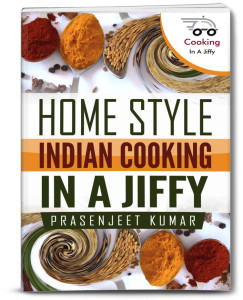Writing Without Spending a Dime
- By Prasenjeet
- February 17, 2015
- 2 Comments
You may wonder if I’m starting with an oxymoron, because writing normally is NOT an activity that should cost anyone any money. You just grab your pen and paper, if you are an “old world” writer, and start scribbling away. Or if you are like me, you power up your laptop, open a document on your word processor and start punching.
Image Courtesy of Naypong/FreeDigitalPhotos.net
Hopefully you may have some pen and paper or a laptop lying somewhere around your home. So where do you need to spend any money on writing?
Can you guess? It’s training, of course! A lot of advice floats on the internet (mostly coming from other authors) asking budding writers to not even start thinking about their dream novel unless they have put in Malcom Gladwell’s famous 10,000 hours of training.
So what is wrong with this advice? Shouldn’t authors acquire the craftsmanship of writing so that when they write their first work of fiction or non-fiction, they appear reasonably professional to their potential readers?
Surely there can be no harm attempting that, notwithstanding the fact that most famous authors didn’t have any professional training in creative writing (not even J.K. Rowling).
My basic reservation stems from the fact that most such writing workshops are extremely expensive (some even cost anywhere from $4000-$12000). What if you are a poor Author who has lost her day job and can barely afford to pay your mortgage and bills? What if you live in a country (other than in the North America or Europe) where you may not have any access to good training, simply because writing is considered a hobby (or a luxury) and most people like to be coached, if they have to, for getting some other “real” job?
And this is not even the most important part. Ever since I read Kristine Kathryn Rusch’s excellent book “The Pursuit of Perfection and How It Harms Writers” my eyes have been opened about the reality of workshop training. Writers join such workshops in the hope of improving their craft but often quite the opposite happens. Rusch does a fantastic job of exposing how destructive the techniques employed by peer workshops are for a budding writer’s morale and career. By peer workshops, she means, “workshops, in which everyone, from the professor (or editor or writer-leader) to the unpublished students gets to weigh on in the manuscript before them”.
In these workshops what typically happens is that your manuscript (usually a short story) gets to be critiqued (actually the word for this is constructive feedback or positive criticism) by your peers and colleagues. As Rusch explains, “most workshops have a no-holds-barred policy: the critiques can say whatever they want as meanly as they want and at whatever length they choose”. In her experience, in some cases, criticism of a short story of 3,000 words have lasted for more than 20 minutes!
You can imagine the blow to the writer’s self-confidence. This is exactly Rusch’s point. Most writers give up on their dreams after a semester of “creative writing” because they become so demoralised! Is this then where you should be spending your hard earned money?
The worst and the saddest part is that most of these critiques are from either wannabe writers themselves (who have probably not yet written a single page of anything that can be termed “creative”) or authors with a few books under their belt but with no idea of how the technique for writing a short story could be completely different from that of writing a novel.
Image Courtesy of Pakorn/FreeDigitalPhotos.net
Of course, you can argue that not all workshops are like that and I would readily agree. We sure cannot generalise but then you have to be careful about the type of workshop you choose. Check out their websites, meet their teachers, ask them about their training methods and consider whether it all suits your temperament (and your pocket) before you take out your credit card or cheque book. Be forewarned, however, that this can all be quite time consuming.
So I propose a better alternative. Instead of putting Malcolm Gladwell’s advice about logging in 10,000 hours of training in an “organised” setting, why not put the same number of hours practicing to write, by yourself?
Practicing is the key to success. The more you write, the better your craft becomes. Writers assume that creative workshops can help them craft a perfect story which they cannot on their own.
Well, the reality is that there is no such thing as a perfect story.
If you need to learn how to craft a murder scene in your novel, you will find plenty of articles and resources that other writers have shared so liberally on the internet or on their blogs. Simply google them and you will definitely find what you are looking for. I had to do some research on crafting a legal scene for my book Celebrating Quiet People: Uplifting Stories for Introverts and Highly Sensitive Persons where a shy, tongue tied law student participates in a mock court room competition against his more eloquent peers. I found plenty of really helpful resources on the internet that taught me how a fictional legal scene differs from a real one. For example you don’t quote excessive case laws, citations and procedures and bore your readers to death, something that you can’t do without if you were in a real courtroom with a real judge. Instead you focus more on emotions. Hey, this is fiction after all. For inspiration, I re-read John Grisham’s A Time to Kill, a book that I had read in my college days and enjoyed a lot. John Grisham does a fantastic job of crafting a legal scene and is definitely a worthwhile example to follow if you are thinking of writing anything legal.
Anyway, my simple point is that you can easily train yourself WITHOUT SPENDING A DIME. If you do have the resources to invest somewhere in training, buy a good book first that teaches you how to write fiction or whatever you want to write. This is what I do.
 You will do far better by following a strong work ethic than attending any creative workshop. Discipline trumps talent every day. This is why it is important to write fast, have a cut-off date where you send your manuscript to your editors/beta-readers and have a deadline for publishing your book.
You will do far better by following a strong work ethic than attending any creative workshop. Discipline trumps talent every day. This is why it is important to write fast, have a cut-off date where you send your manuscript to your editors/beta-readers and have a deadline for publishing your book.
Image Courtesy of Pakorn/FreeDigitalPhotos.net
And finally remember one thing. You will never write a perfect book.
So once you are done, you are done. Move on to the next book. Practice, Practice, Practice!
Do share what your experience was after attending a creative workshop. Was it useful in your writing career?

































I’m so glad, I found your website. This is fantastic info. I’d been bemoaning the fact that I didn’t want to spend that much money on writing workshops when I have a family to care for.
I felt better after reading your article.
Thanks again
Julia K.
I’m glad you found the blog useful. Keep coming back for more. 🙂